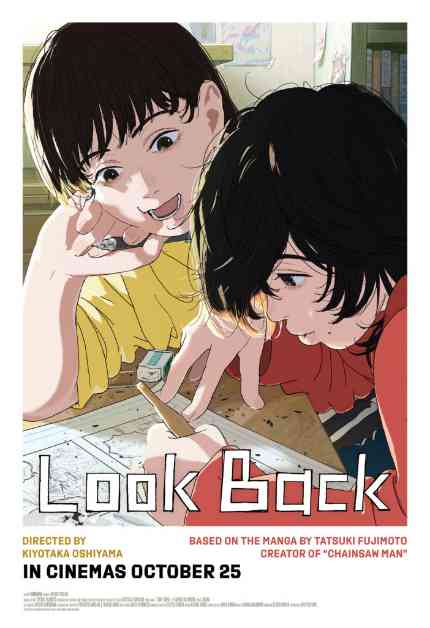Tatsuki Fujimoto is a rising star in the world of manga, known for his global hit Chainsaw Man. However, it is his latest work, Look Back, that truly showcases his talent as a creator. The story follows two young girls, Fujino and Kyomoto, who bond over their love for drawing manga. As they grow and their skills develop, their paths begin to diverge, leading to unexpected outcomes.
Having recently read the manga, I was eagerly anticipating the release of the film adaptation. Look Back delves into themes of creativity, rivalry, and the fragility of life. It also touches on the struggles of being a creator and the harsh realities of competition. The characters of Fujino and Kyomoto are complex and relatable, each reflecting different aspects of human nature.
At only 58 minutes long, Look Back may seem short for a feature film, but it stays true to Fujimoto’s original work. The adaptation faithfully captures the essence of the manga, thanks to Studio Durian’s meticulous attention to detail. The film’s main theme, “Light Song” by Urara, adds an ethereal touch to the viewing experience.
As a fan of adaptations, I often find myself torn between faithfulness to the source material and creative expansion. Look Back manages to strike a balance, staying true to the manga while bringing a new dimension to the story. The film’s focus on introspection and universal themes makes it a compelling watch for both existing fans and newcomers.
Look Back is a poignant exploration of the creative process and the complexities of human emotions. I believe that this adaptation will introduce Tatsuki Fujimoto to a wider audience, showcasing his versatility beyond Chainsaw Man. His ability to capture the essence of humanity in his work sets him apart from other manga creators in the industry.
For those interested in experiencing Look Back, the film is set to release in cinemas on Friday, 25th October, with an Amazon Prime Video debut on Thursday, 7th November. Don’t miss the chance to immerse yourself in Tatsuki Fujimoto’s unique storytelling and thought-provoking narratives.
